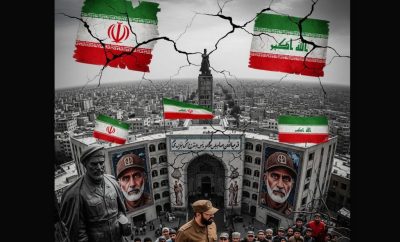
Donald Trump goes to Europe, new and old
With trips to Poland, Germany, and France planned for the first half of July, it is a busy beginning of the summer for President Donald Trump. Both trips present the administration with opportunities to make up for the president’s performance in Brussels last month. His abrasive rhetoric damagedthe stature of the United States in Europe — if only by playing into the hands of anti-American sentiments in Europe, especially in Germany where transatlantic relations have become a salient topic in the campaign ahead of the September election. His visit to Poland, on July 5-6, just before heading to the G20 summit held in Hamburg, Germany, should be relatively straightforward. Poland is among those NATO allies that meet the 2-percent spending target. Any antics about “owing massive amounts of money” to the alliance would thus be terribly misplaced. Instead, Mr. Trump ought to reassure Poland — and other countries of the region, whose leaders will be attending the Three Seas Summit in Warsaw — that the United States is firmly committed to defending its allies against the lingering Russian threat.
Yet, there is also a danger in showing too much love to the Poles. Poland’s current government, led by the nationalist Law and Justice Party (PiS), shares Mr. Trump’s views on immigration and an outlook that discounts the importance of checks and balances constraining elected officials. Its attack on the country’s Constitutional Tribunal is one example — another is the large number of resignations by the country’s top officers, protesting PiS’ increasing politicization of the military.
PiS is keen to exploit Mr. Trump’s visit as an endorsement of such moves, accelerating the country’s drift away from an active player shaping the future of the European Union (EU) towards being a troublemaker confined to the margins of European discussions. From the US perspective, it would be dangerous to feed the illusion that a stronger transatlantic relationship can act as a substitute for the place of Central and Eastern European countries in the EU. Doing so would create expectations that the Trump administration is not ready to fulfill. Moreover, the growing divisions in Europe would destabilize the region, giving Vladimir Putin extra leverage over the West.
On July 14, Mr. Trump will also join the President of France, Emmanuel Macron, at the annual military parade on the Champs-Élysées. This year’s Bastille Day will be special, since it will also mark the one-hundredth anniversary of the US entry into World War I, side by side with France, the United Kingdom, and Russia. As in the case of Mr. Putin’s recent visit to Versailles, on the occasion of the 300th anniversary of Tsar Peter the Great’s trip to France, one can expect careful choreography, projecting an image of France as a global power.
Whether or not he thinks France can stand as an equal with the United States, Russia, or China, Mr. Trump ought to put his best foot forward. To do that, he should forget about superficial appearances and the trolling. Mr. Macron is no Anti-Trump and there is a lot that the French and the Americans can (and should) do together. France is doing important work stabilizing the Sahel. Unlike Barack Obama, France’s former president, François Hollande, understood that without Western engagement — including the use of military force — there can be no political solution to the bloody civil war in Syria.
Recently, of course, Mr. Macron backtracked from Paris’ long-held position on Assad’s departure, saying that there was no clear successor to him. That is wrong. The violence in the country will perpetuate itself as long as Assad, backed by Iran and Russia, clings to power. Addressing the problem is impossible without the leadership, vision, and strategy supplied in normal times by the United States. Can Mr. Trump use his trip to Paris to provide those? Even under the best of circumstances, that might be too much to ask for.
Dalibor Rohac is a research fellow at the American Enterprise Institute (AEI), where he studies European political and economic trends. Specifically, he is working on Central and Eastern Europe, the European Union (EU) and the eurozone, US-EU relations, and the post-Communist transitions and backsliding of countries in the former Soviet bloc. He is concurrently a visiting junior fellow at the Max Beloff Centre for the Study of Liberty at the University of Buckingham in the UK and a fellow at the Institute of Economic Affairs in London.




